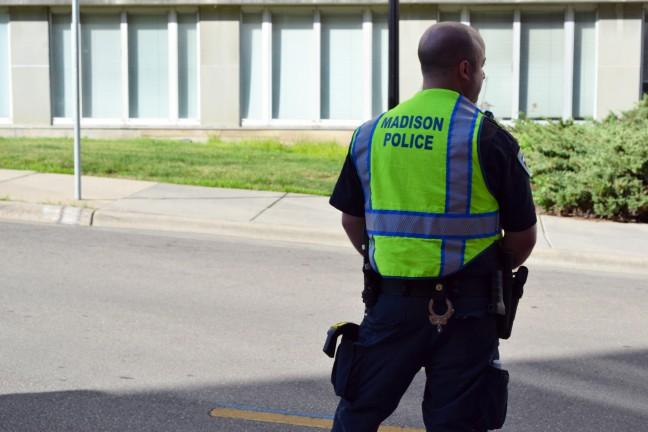Madison City Council voted Tuesday for a compromise that will require Madison’s Independent Police Monitor to review the Madison Police Department’s use of tear gas after every instance of its use.
The ordinance was proposed by District alderperson and University of Wisconsin student Juliana Bennett and mandates the police monitor to begin their review within 30 days of an incident involving tear gas occurring and report the findings to the Police Civilian Oversight Board, according to the Wisconsin State Journal.
Bennett’s action was spurred by the Madison Police Department’s use of crowd control during the Black Lives Matter protests in the spring and summer of 2020 following the police killing of George Floyd, the post said.
“The use of chemical munitions, including tear gas and pepper spray, outraged crowds and fostered increasing hostility toward MPD,” Bennett said.
The list of materials that would require review includes but is not limited to tear gas, pepper spray and impact projectiles such as rubber bullets, according to Bennett’s blog post on the City of Madison website.
Bennett originally wanted the ordinance to ban police use of crowd control measures such as tear gas or pepper spray outright, but changed the proposal before the vote to make it more popular among her colleagues.
“It still doesn’t change the Madison Police Department’s standard operating procedures,” Bennett said in an interview with The Badger Herald. “But something is better than nothing.”
According to the Wisconsin State Journal, the City Council voted 14-4 for the compromise.
The City Council offered up the stage for public comments at their meeting before the vote, and many members of the public offered opinion on the proposal. All speakers focused on either tear gas or pepper spray when raising concerns.
“Overall, people exposed to tear gas have greater health care needs afterward,” Nicholas Davies said at the council meeting.
Davies, a Madison resident from District 15 who supported the compromise, also said that many other places have already instituted a ban.
Not everyone at the meeting supported the ordinance. Also at the meeting, community member Kim Richmond of District 16 stated a worry that banning non-lethal crowd control tactics would lead police to use more dangerous ones, like billy clubs, tasers and firearms.
“This proposed ban is incredibly regressive and not progressive,” Richmond said. “Reducing non-lethal force makes lethal force more likely.”
According to PBS and NPR, Philadelphia, Pennsylvania and Portland banned the use of tear gas, rubber bullets and pepper spray by police at protests in 2020.
Bennett is happy that at least some progress has been made and hopes that this ordinance will help police officers be more conscious of when they use tear gas and similar crowd control munitions.
“I hope that the thought of a review by the independent monitor will make police stop and think, ‘Hey, could there be a better way to handle this?'” Bennett said.


